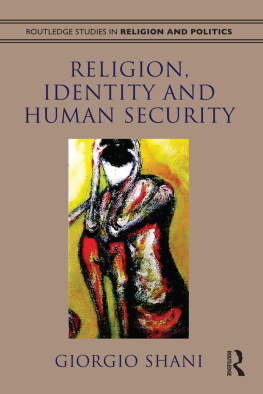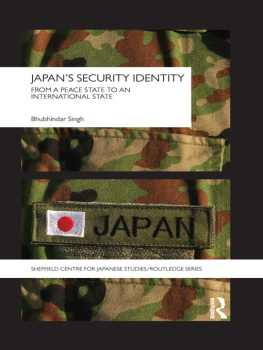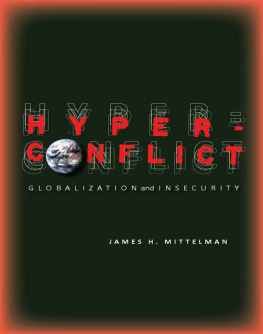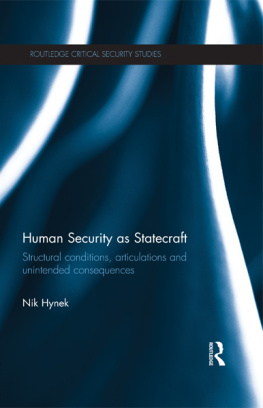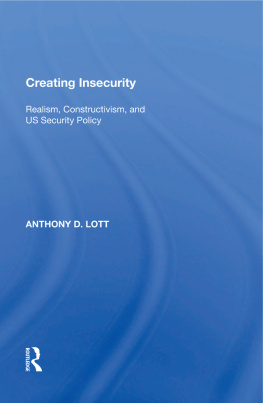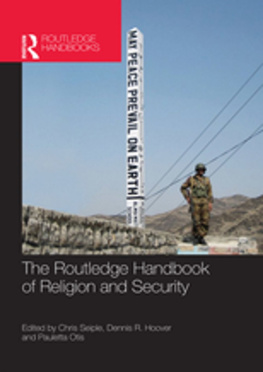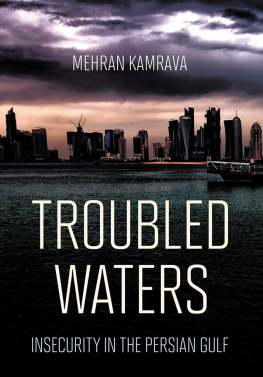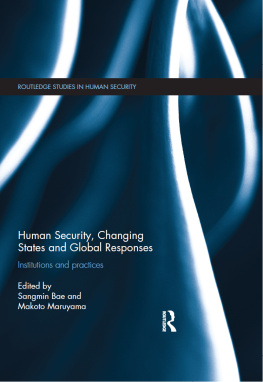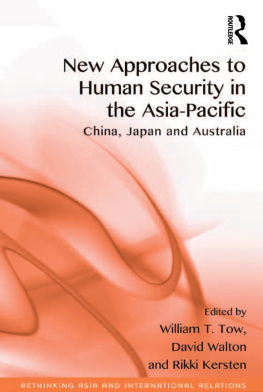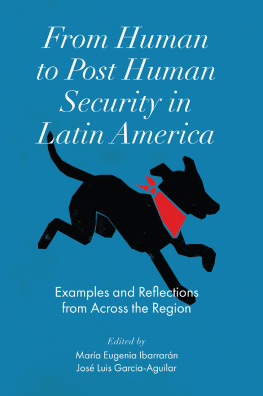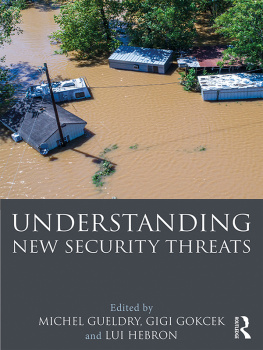Religion, Identity and Human Security
Religion, Identity and Human Security seeks to demonstrate that a major source of human insecurity comes from the failure of states around the world to recognize the increasing cultural diversity of their populations which has resulted from globalization. Shani begins by setting out the theoretical foundations, dealing with the transformative effects of globalization on identity, religion and security. The second part of the book then draws on different cases of sites of human insecurity around the globe to develop these ideas, examining themes such as:
- securitization of religious symbols;
- retreat from multiculturalism;
- rise of exclusivist ethno-religious identities post-9/11; and
- state religion, colonization and the racialization of migration.
Highlighting that religion can be a source of both human security and insecurity in a globalizing world, Shani offers a critical human security paradigm that seeks to desecularize the individual by recognizing the culturally contested and embedded nature of human identities. The work argues that religion serves an important role in re-embedding individuals deracinated from their communities by neo-liberal globalization, and will be of interest to students of international relations, security studies, and religion and politics.
Giorgio Shani is the Director of the Social Science Research Institute and Senior Associate Professor of Politics and International Relations at the International Christian University, Japan.
Routledge studies in religion and politics
Edited by Jeffrey Haynes
London Metropolitan University, UK
This series aims to publish high-quality works on the topic of the resurgence of political forms of religion in both national and international contexts. This trend has been especially noticeable in the post-Cold War era (that is, since the late 1980s). It has affected all the world religions (including Buddhism, Christianity, Hinduism, Islam, and Judaism) in various parts of the world (such as the Americas, Europe, the Middle East and North Africa, South and South-East Asia, and sub-Saharan Africa).
The series welcomes books that use a variety of approaches to the subject, drawing on scholarship from political science, international relations, security studies, and contemporary history.
Books in the series explore these religions, regions, and topics both within and beyond the conventional domain of ChurchState relations to include the impact of religion on politics, conflict, and development, including the late Samuel Huntingtons controversial yet influential thesis about clashing civilizations.
In sum, the overall purpose of this book series is to provide a comprehensive survey of what is currently happening in the interaction between religion and politics, both domestically and internationally, in relation to a variety of issues.
Politics and the Religious Imagination
Edited by John Dyck, Paul Rowe and Jens Zimmermann
Christianity and Party Politics
Keeping the faith
Martin H. M. Steven
Religion, Politics and International Relations
Selected essays
Jeffrey Haynes
Religion and Democracy
A worldwide comparison
Carsten Anckar
Religious Actors in the Public Sphere
Means, objects and effects
Edited by Jeffrey Haynes and Anja Hennig
Politics and Religion in the United Kingdom
Steve Bruce
Politics, Religion and Gender
Framing and regulating the veil
Edited by Sigelinde Rosenberger and Birgit Sauer
Representing Religion in the European Union
Does God matter?
Edited by Lucian N. Leustean
An Introduction to Religion and Politics
Theory and practice
Jonathan Fox
Religion in International Relations Theory
Concepts, tools, debates
Nukhet A. Sandal and Jonathan Fox
Religion in the Context of Globalization
Essays on concept, form, and political implication
Peter Beyer
Religion and the Realist Tradition
From political theology to international relations theory and back
Jodok Troy
Cosmopolitanism, Religion and the Public Sphere
Maria Rovisco and Sebastian Kim
Religion, Identity and Human Security
Giorgio Shani
Through an erudite analysis of recent debates about the veil in France, ethno-religious tensions in South Asia, and ethno-nationalism in Japan, Giorgio Shani defends a post-secular approach to human security that openly embraces cultural diversity and religious difference. This lucid and wide-ranging book will interest students of globalisation, identity politics, post-colonialism, and critical security studies.
Prof. Andrew Linklater, Aberystwyth University, UK
This excellent book is not only an original contribution to critical human security studies, but, more broadly, is an outstanding remapping of post-secular thinking on international relations.
Prof. Mustapha Kamal Pasha, Aberystwyth University, UK
First published 2014
by Routledge
2 Park Square, Milton Park, Abingdon, Oxon OX14 4RN
and by Routledge
711 Third Avenue, New York, NY 10017
Routledge is an imprint of the Taylor & Francis Group, an informa business
2014 Giorgio Shani
The right of Giorgio Shani to be identified as author of this work has been asserted by him in accordance with the Copyright, Designs and Patent Act 1988.
All rights reserved. No part of this book may be reprinted or reproduced or utilized in any form or by any electronic, mechanical, or other means, now known or hereafter invented, including photocopying and recording, or in any information storage or retrieval system, without permission in writing from the publishers.
Trademark notice: Product or corporate names may be trademarks or registered trademarks, and are used only for identification and explanation without intent to infringe.
British Library Cataloguing in Publication Data
A catalogue record for this book is available from the British Library
Library of Congress Cataloging in Publication Data
Shani, Giorgio, 1970
Religion, identity and human security / Giorgio Shani.
pages cm. (Routledge studies in religion and politics)
Includes bibliographical references and index.
1. Globalization. 2. GlobalizationReligious aspects. 3. Group identity. 4. Human security. 5. Multiculturalism. I. Title.
JZ1318.S49 2014
306.6dc23 2013041412
ISBN: 978-0-415-50906-0 (hbk)
ISBN: 978-0-415-51925-0 (pbk)
ISBN: 978-1-315-77903-4 (ebk)
Typeset in Bembo
by Keystroke, Station Road, Codsall, Wolverhampton
Cover image: Insecurity Surinder Shani
The twentieth anniversary of the publication of the United Nations Development Programmes Human Development Report , which introduced the concept of human security to an international audience, provides an opportune moment to reflect on its relevance to a world increasingly assailed by a variety of different challenges and crises. Despite its recent adoption by the United Nations General Assembly in September 2012 and its institutionalization in the United Nations system through the Trust Fund for Human Security, human security has failed to contest the hegemony of the national security paradigm within the theory and practice of international relations. Widely discredited following its inability to provide security from the existential threats caused by hunger, poverty, disease, repression, environmental disasters and terrorism, the national security paradigm continues to provide the dominant framework for ascertaining and dealing with security threats. Human security, on the other hand, continues to be ensconced in a liberal straitjacket that reduces the human to a bundle of needs and wants, a poor, bare, forked animal ( King Lear , Act III, Scene IV), to be protected and empowered from a range of existential threats from physical violence to hunger, disease and illiteracy by the state and the international community of territorialized states. In its present instantiation, it lends itself to co-option and incorporation into the national security paradigm, which divides humanity into self-contained units with different interests and capabilities, thus naturalizing war, poverty and conflict.

